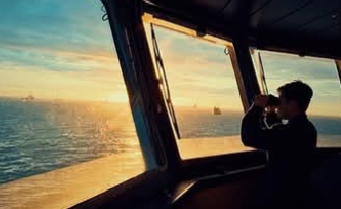IMO’s Sub-Committee on Human Element, Training and Watchkeeping (HTW) has agreed on draft interim generic guidelines for training seafarers working on ships powered by alternative fuels and new technologies. These draft guidelines will be submitted to the Maritime Safety Committee for approval in June.
Meeting in London from 10 to 14 February, the Sub-Committee recognized the industry’s growing need for such guidance due to the increasing use of alternative fuels and the associated safety risks. The Sub-Committee agreed that such guidance should be provided through both:
generic interim guidelines applicable across the whole industry and relevant to all alternative fuels and new technologies; and
individual sets of fuel/technology-specific interim guidelines, closely aligned with safety provisions developed by other IMO bodies.
With the draft interim generic guidelines finalized, the Sub-Committee has now begun developing specific training guidelines for seafarers working on methyl/ethyl alcohol-fuelled ships.
This effort will continue inter-sessionally under the Correspondence Group on the Development of Training Provisions for Seafarers on Ships using Alternative Fuels and New Technologies.
- Advertisement -
Development of fuel-specific training guidelines
The Correspondence Group has been tasked with developing interim training guidelines, including individual sets of guidelines for:
the use of methyl/ethyl alcohol as fuel, taking into account MSC.1/Circ.1621 on Interim guidelines for the safety of ships using methyl/ethyl alcohol as fuel;
the use of ammonia as fuel, taking into account MSC.1/Circ.1687 on Interim guidelines for the safety of ships using ammonia as fuel; hydrogen fuel cell powered ships, taking into account MSC.1/Circ.1647 on Interim guidelines for the safety of ships using fuel cell power installations; the use of LPG as fuel, taking into account MSC.1/Circ.1666 on Interim guidelines for the safety of ships using LPG as fuel; the use of hydrogen as fuel; and
battery powered ships.
The Correspondence Group will submit a report on its progress to the Sub-Committee at the forthcoming 12th session of the Sub-Committee (HTW 12).
Other key outcomes of the HTW 11 meeting
In addition the development of these interim guidelines for training of seafarers on ships using alternative fuels and new technologies, the Sub-Committee addressed several other important matters:
Completion of Phase 1 of the comprehensive review of the STCW Convention and Code, with a work plan agreed for Phase 2.
Draft MSC resolution on the accessibility of information on seafarer medical certificates and recognized medical practitioners.
Validation of revised model courses for seafarer training.




Comments are closed.